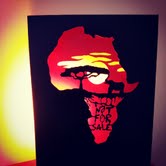On Friday September 21, in commemoration of the international Day of Peace, WAOW organized its first in a series of policy forums designed to foster debate and generate knowledge on natural resources and conflicts. The seminal event brought together policy makers, academics, students and members of the NGO community in the Greater Washington DC area to explore emerging trends in resource-based conflicts. Rebecca Sutton highlighted the significance of the day, which she pointed out is a day to remember people and societies that find themselves confronting issues of conflict an under-development in many parts of the world. The keynote speaker Ambassador (ret.) Herman Cohen, Assistant Secretary of State for African Affairs (1989-1993) outlined the opportunities, challenges, strengths and limitations of big power peacemaking in sub-Saharan Africa in general and Mozambique in particular.
Drawing comparisons from his different duty stations, the ambassador outlined why peace
processes in resource-rich nations tend to fail when compared to their resource-poor neighbors. The financial windfall from the sale of the natural resources, lack of transparency and accountability, lack of civic participation all contribute to the so-called ‘resource curse’. But proactive peacemaking, as in Mozambique can yield positive results. Professor Lisa Breglia, of George Mason University, who has undertaken extensive research on the linkages between cultural and natural resources and conflict in the Americas outlined some lessons that emerging petro-regions such as West Africa can learn from the other oil producing regions. Professor Breglia pointed out that proactive civic engagement is vital to building a critical mass for the protection of cultural and natural rights.
 In his presentation Dr. Vandy Kanyako highlighted the unique circumstances into which petro-culture is taking roots in West Africa. The region is enjoying a semblance of peace after the civil wars of the 1990s. If properly managed oil should help to integrate the region into the global economy. For that to happen however both governments and oil companies should be more transparent about their dealings in a politically combustible region. Stephen Woodward in his presentation highlighted various ways in which groups and individuals can remain engaged in the issues around oil and transparency. A groundswell of support and consumer awareness is critical to addressing the demand and supply side of transparency and accountability in the extractive industry.
In his presentation Dr. Vandy Kanyako highlighted the unique circumstances into which petro-culture is taking roots in West Africa. The region is enjoying a semblance of peace after the civil wars of the 1990s. If properly managed oil should help to integrate the region into the global economy. For that to happen however both governments and oil companies should be more transparent about their dealings in a politically combustible region. Stephen Woodward in his presentation highlighted various ways in which groups and individuals can remain engaged in the issues around oil and transparency. A groundswell of support and consumer awareness is critical to addressing the demand and supply side of transparency and accountability in the extractive industry.- Engaging Civil Society Practitioners
In order to foster a mutually reinforcing relationship and promote collaborative partnerships between
 CSOs in the region, the West Africa Oil Watch organized a series of informal consultations with civil society thought leaders about growing significance of petro-culture in their respective localities. Participants, mainly from civil society organizations and consortiums, were drawn from Liberia, Sierra Leone, Ghana, Guinea, Cameroon, Tanzania, Egypt and Uganda. Using traditional and new media (Facebook, email, phone, skype) participants were engaged directly in order to gain a first hand insight in ways of building actionable strategies for engaging the oil sector.
CSOs in the region, the West Africa Oil Watch organized a series of informal consultations with civil society thought leaders about growing significance of petro-culture in their respective localities. Participants, mainly from civil society organizations and consortiums, were drawn from Liberia, Sierra Leone, Ghana, Guinea, Cameroon, Tanzania, Egypt and Uganda. Using traditional and new media (Facebook, email, phone, skype) participants were engaged directly in order to gain a first hand insight in ways of building actionable strategies for engaging the oil sector.- A few key lessons that emerged from the various consultations include the following:
The civil society sector, while active, lack the knowledge and organizational capacity to realize their full potential to further sustained engagement with the oil sector The sector is too new in many of these countries and as such civil society is only now playing catch up, especially as negotiations and consultations between governments and oil companies are at an advanced stage. Authorities are content with sidelining civil society and other stakeholders, and in some cases are against any form of organized civic engagement. There is lack of coordination between various civic actors in the region.
On the basis of these findings there emerged the need for regular consultations as a way to provide the platform to engage various actors working on transparency and accountability issues in the region specifically. WAOW will be organizing a series of training programs in the near future to build the capacity of civil society actors active in transparency and accountability issues in the region.








